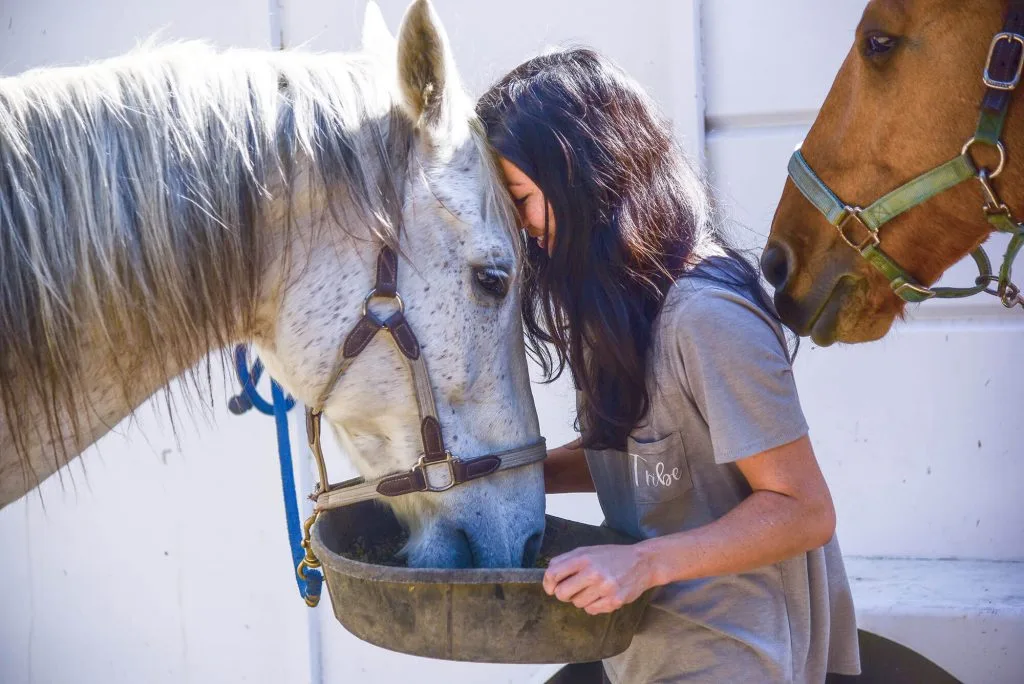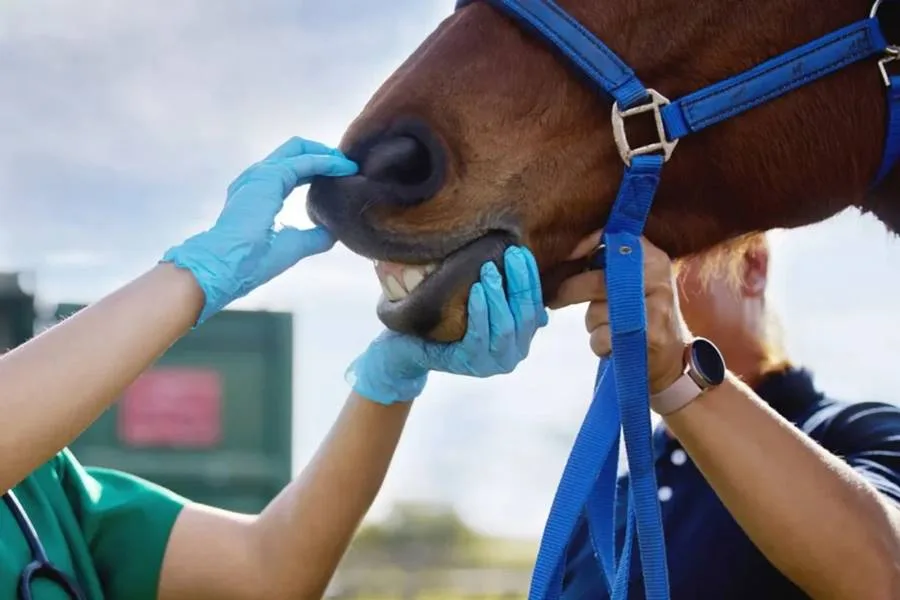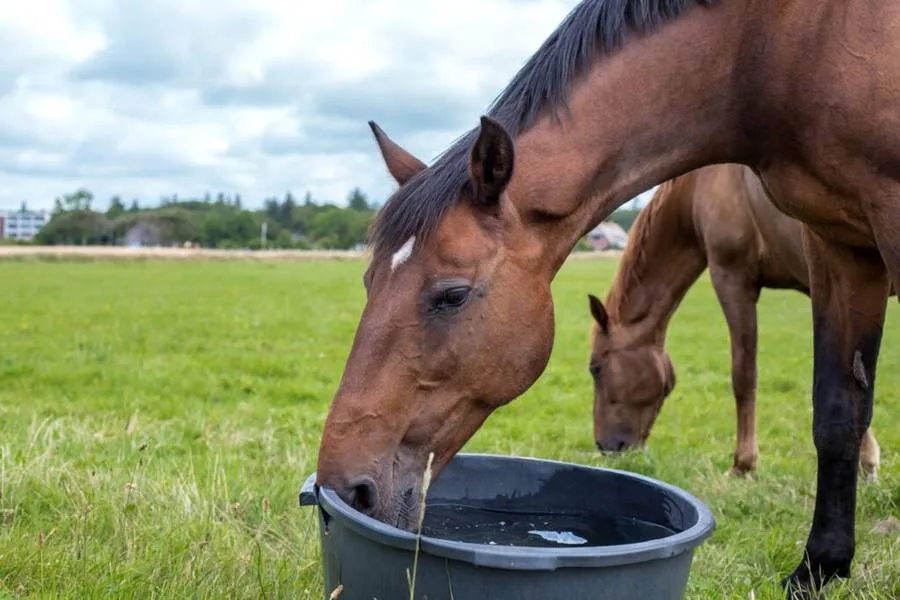Spending time with horses can provide numerous physical, emotional, and psychological health benefits.
Horses are known for their calming presence, their ability to connect with humans, and their therapeutic impact. Whether through riding, grooming, or simply being around them, interacting with horses can have a positive effect on both the mind and body.
1. Stress Reduction and Improved Mental Health
One of the most immediate and noticeable benefits of spending time with horses is stress reduction. Horses are highly sensitive to human emotions and body language, which allows them to mirror our feelings and respond accordingly. This means that interacting with horses can help calm anxiety, lower stress levels, and improve overall mood.
The rhythmic movement of horses, such as walking or trotting, has a calming effect on people. Being around horses has been shown to reduce levels of cortisol (the stress hormone) in the body, while simultaneously increasing levels of oxytocin, a hormone that promotes feelings of relaxation and bonding. This makes horses particularly effective in helping individuals cope with anxiety, depression, and other emotional challenges.
2. Improved Physical Health and Fitness

Spending time with horses often involves physical activities like riding, grooming, and leading the horse. These activities can have a positive impact on physical health. For example, horseback riding is an excellent full-body workout that engages the core muscles, legs, and arms. The balance required to stay on the horse also improves coordination and strengthens muscles, which can lead to better posture and increased flexibility.
Additionally, activities like grooming, mucking out, or leading the horse around the stable involve physical movement and can promote cardiovascular health and overall fitness. These activities help increase endurance, strengthen the muscles, and promote better circulation.
3. Therapeutic Benefits (Equine-Assisted Therapy)
Equine-assisted therapy (EAT) is a recognized form of therapy that uses horses to help people with a variety of physical, emotional, and mental health conditions. People with disabilities, trauma, PTSD, and other mental health issues can benefit from interacting with horses in a therapeutic setting. Horses’ nonjudgmental, empathetic nature makes them ideal companions for those seeking emotional healing.
In equine-assisted therapy, the individual might work with a trained therapist and a horse to improve social skills, self-esteem, emotional regulation, and even motor skills. The relationship with the horse helps to build trust, encourage communication, and develop coping mechanisms in a supportive environment.
4. Boosted Confidence and Self-Esteem
Horses are large, powerful animals, and the act of learning to care for and ride them can significantly boost a person’s confidence and self-esteem. Handling a horse requires patience, empathy, and leadership, qualities that can be developed over time. As a person’s skills improve, they often experience a sense of accomplishment and empowerment.
For children and teenagers, spending time with horses can be especially beneficial for self-confidence. The responsibility of caring for a horse, combined with the trust and connection built through riding, can create a strong sense of self-worth and personal achievement.
5. Social Connection and Community

Horses can also promote social interactions and a sense of community. Whether you are part of a riding group, a therapeutic riding program, or a stable, spending time with horses often involves connecting with others who share similar interests. These interactions can combat loneliness and isolation, providing a sense of belonging and social support.
For many people, horses become a means to form lasting relationships and friendships with other horse enthusiasts. This sense of community can be especially beneficial for those who may struggle with social anxiety or depression.
6. Improved Emotional Regulation and Mindfulness
Horses are incredibly sensitive to the emotions of the people around them. They can pick up on subtle changes in body language, tone of voice, and even heart rate. As a result, spending time with horses can help individuals become more mindful of their emotions and learn to regulate them effectively.
For example, if a person is feeling anxious or frustrated, a horse may react by becoming restless or agitated. This provides immediate feedback and encourages the individual to manage their emotions in a calm, controlled manner. Over time, interacting with horses helps people become more aware of their emotional states and develop better coping strategies.
7. A Stronger Connection to Nature
Horses live in natural environments and spending time with them often takes people outdoors, into open fields, stables, or farms. This connection to nature has its own set of health benefits. Being outside in natural settings has been shown to improve mood, reduce feelings of depression, and increase overall feelings of well-being. The quiet, peaceful environment of a barn or pasture can be a welcome escape from the stresses of daily life.
8. Mind-Body Coordination and Balance
Riding a horse requires a unique balance of physical and mental coordination. Riders need to maintain posture, use their legs to guide the horse, and work with the horse’s movements. This improves overall body awareness and strengthens the connection between mind and body.
For children with developmental challenges, horseback riding has been shown to improve motor coordination, balance, and spatial awareness. The movement of the horse mimics the motion of walking, which can also be beneficial for people with physical disabilities, as it promotes better posture, muscle tone, and motor control.




